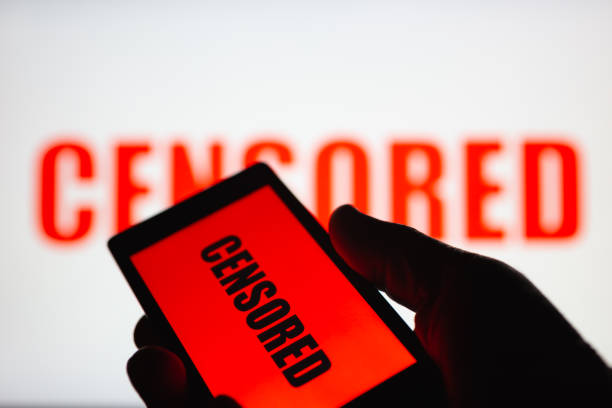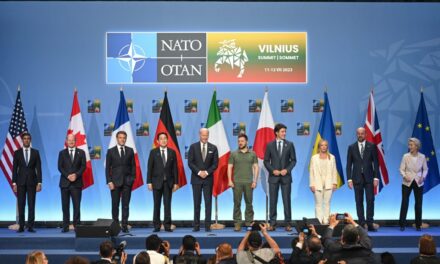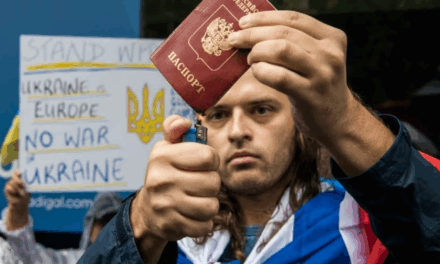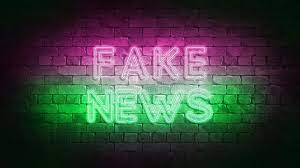In the modern era, the internet has become the primary vehicle for information dissemination, where social media platforms stand at the forefront. These platforms, designed to connect people, share information, and foster communities, have evolved into powerful tools with far-reaching influence over public opinion, political discourse, and societal trends. As these platforms have grown in significance, so too have the figures behind them. CEOs like Pavel Durov of Telegram, Mark Zuckerberg of Facebook, and Elon Musk of X (formerly Twitter) have not only shaped the digital landscape but have also become emblematic of the broader debates surrounding privacy, free speech, and corporate power.
However, the immense power these platforms wield has also made them targets of scrutiny and control. Governments, media, and political elites have increasingly focused their efforts on regulating and influencing these platforms to serve their own ends. This article delves into the recent legal troubles of Pavel Durov, CEO of Telegram, comparing his situation with that of Mark Zuckerberg, CEO of Facebook, and Elon Musk, owner of X. Through these comparisons, we will explore the narratives that surround these powerful figures and question the motivations behind the actions taken against them. Ultimately, we will examine whether the elites are attempting to seize total control over these platforms and the information they propagate.
The Case of Pavel Durov: A Champion of Privacy Under Siege
Pavel Durov is often hailed as a digital freedom fighter, a man who has consistently placed privacy and free speech at the forefront of his work. His journey began in Russia, where he founded the social network VKontakte (VK), which quickly became the largest social media platform in the country. However, Durov’s refusal to bow to government demands for user data led to his ousting from VK, forcing him into exile. Undeterred, Durov went on to create Telegram, a messaging app that has become synonymous with privacy and encryption.
Telegram’s commitment to privacy has made it a favourite among activists, journalists, and dissidents worldwide. The app’s strong encryption features and refusal to cooperate with government surveillance requests have earned Durov a reputation as a champion of digital rights. However, this very commitment has also put him in the crosshairs of authorities in various countries. Governments argue that Telegram’s encryption makes it a haven for criminals, terrorists, and other bad actors. Durov, however, has consistently maintained that privacy is a fundamental right, and that weakening encryption for government access would be a slippery slope toward mass surveillance and authoritarianism.
In recent years, Durov has faced increasing legal pressure, culminating in his recent arrest and subsequent release on bail. Officially, the charges against him relate to criminal activities allegedly facilitated by Telegram, such as drug trafficking and terrorism. However, many observers believe these charges are a pretext to exert control over Telegram and force Durov to hand over user data to authorities.
Durov’s legal troubles have sparked a global debate about the balance between privacy and security. On one hand, governments argue that they need access to encrypted communications to prevent crime and terrorism. On the other hand, privacy advocates warn that granting such access would undermine the very foundation of personal freedom and could lead to widespread abuses of power.
Durov’s case is particularly striking because it highlights the lengths to which governments are willing to go to control the flow of information. By targeting Durov, authorities are sending a clear message: those who resist government overreach will face severe consequences. This sets a dangerous precedent for the future of privacy and free speech in the digital age.
Mark Zuckerberg and the Facebook Controversies
While Pavel Durov’s legal troubles stem from his refusal to compromise on privacy, Mark Zuckerberg, CEO of Facebook, faces a different set of challenges. Facebook has been at the centre of numerous controversies over the past decade, ranging from data privacy scandals to the platform’s role in spreading misinformation. Two of the most significant controversies involve Facebook’s handling of information related to COVID-19 and the Hunter Biden laptop story.
During the COVID-19 pandemic, Facebook was criticized for its role in spreading misinformation about the dangers of catching the virus, vaccine data manipulation, and public health measures. The platform’s algorithms were redesigned to maximize pro-vaccine stories, which led to the widespread dissemination of false information. Facebook has now admitted that it bowed to government pressure to suppress alternative treatment, vaccine injuries and risks associated with taking the experimental drug.
The Hunter Biden laptop story further complicated matters. In October 2020, just weeks before the U.S. presidential election, the New York Post published a story based on emails allegedly retrieved from Hunter Biden’s laptop, which was purportedly abandoned at a repair shop. The emails suggested questionable business dealings involving Hunter Biden and his father, Joe Biden, who was then a presidential candidate. Facebook, along with Twitter, took steps to limit the spread of the story, citing concerns about the veracity of the information and the possibility of it being part of a Russian disinformation campaign.
Zuckerberg later admitted that Facebook’s decision to suppress the Hunter Biden story was influenced by the FBI, which had warned tech companies about the potential for Russian interference in the election. This admission sparked outrage among conservatives, who accused Facebook of censoring information that could have influenced the outcome of the election.
Despite these controversies, Zuckerberg has managed to avoid significant legal repercussions. Facebook has faced fines and regulatory scrutiny, but Zuckerberg himself has not been personally charged or held accountable for the platform’s actions. This has led to accusations of selective enforcement, with critics arguing that Zuckerberg is being protected because of his alignment with certain political elites.
Facebook’s involvement in illegal activities further complicates the picture. The platform has been linked to various criminal activities, including the spread of child pornography, human trafficking, and illegal drug sales. Despite these serious issues, Facebook has largely escaped the kind of legal action that Durov is currently facing. This raises uncomfortable questions about the double standards at play in the tech industry.
Why has Zuckerberg remained free from prosecution, despite the numerous illegal activities that have taken place on Facebook? Is it because of his willingness to cooperate with government authorities, unlike Durov, who has consistently resisted government overreach? Or is it because Zuckerberg’s platform has become too powerful and too integrated into the fabric of society to be dismantled or heavily regulated?
Elon Musk and the Free Speech Debate on X
Elon Musk, the CEO of Tesla and SpaceX, and the owner of X (formerly Twitter), has long been a polarizing figure. Known for his bold vision and unconventional leadership style, Musk has frequently courted controversy. His acquisition of Twitter in 2022 and subsequent rebranding to X marked a significant shift in the platform’s direction, particularly in its approach to content moderation.
Under its previous ownership, Twitter had implemented strict content moderation policies aimed at curbing hate speech, misinformation, and harmful content. These policies were often criticized by conservatives, who argued that they disproportionately targeted right-leaning voices and stifled free speech. When Musk took over, he promised to prioritize free speech and reduce what he saw as excessive censorship on the platform.
Musk’s approach to content moderation has been both praised and condemned. Supporters argue that his emphasis on free speech is a necessary corrective to the overly restrictive policies of the past. They see X as a platform where diverse viewpoints can be expressed without fear of censorship. Critics, however, argue that Musk’s lax approach to moderation has turned X into a breeding ground for hate speech, conspiracy theories, and misinformation.
The backlash against Musk has been intense, with mainstream media outlets and political elites accusing him of undermining social responsibility in the name of free speech. Some have even called for government intervention to rein in X and force it to adopt stricter content moderation policies. This criticism echoes the pressures faced by Pavel Durov, who has also been targeted for his refusal to compromise on privacy and free speech.
Musk’s situation raises important questions about the role of social media platforms in society. Should platforms like X be responsible for policing content and ensuring that only “acceptable” viewpoints are allowed to be expressed? Or should they serve as neutral platforms where free speech is protected, even if that means allowing controversial or harmful content?
Musk’s stance on free speech has put him at odds with the elites, who seem increasingly determined to control the flow of information on social media. His experiences highlight the growing tension between those who believe in the unrestricted exchange of ideas and those who seek to impose their own narratives on the public.
The Elite’s Struggle for Control: A New World Order?
The cases of Pavel Durov, Mark Zuckerberg, and Elon Musk reveal a broader struggle for control over social media platforms. These platforms have become indispensable tools for communication, not just for individuals but for entire societies. As such, they have also become battlegrounds for power and influence.
The elites—comprising government officials, political leaders, and media moguls—recognize the immense power that social media platforms wield. These platforms have the ability to shape public opinion, influence elections, and control the narrative on critical issues. As a result, the elites are increasingly seeking to assert control over these platforms to serve their own interests.
This struggle for control has taken various forms. In the case of Pavel Durov, it has involved legal actions aimed at forcing Telegram to comply with government demands for user data. For Elon Musk, it has involved relentless media criticism and calls for stricter regulation of X. Meanwhile, Mark Zuckerberg has faced pressure to align Facebook’s policies with the priorities of the political establishment, particularly during the COVID-19 pandemic and the 2020 U.S. presidential election.
The elites’ efforts to control social media platforms raise important questions about the future of free speech and democracy. Have these platforms become so indispensable that people believe they need them to exist? If so, what happens when the elites gain control over these platforms and begin dictating what information can and cannot be shared?
The implications of such control are deeply troubling. If social media platforms become tools for government propaganda and censorship, the very principles of free speech and open dialogue that underpin democratic societies will be at risk. The public’s ability to access diverse viewpoints and make informed decisions will be compromised, leading to a more controlled and less open society.
Mark Zuckerberg: A Case of Selective Prosecution?
One of the most striking aspects of the current landscape is the apparent double standard in how different CEOs are treated by the law. While Pavel Durov and Elon Musk face intense scrutiny and legal challenges, Mark Zuckerberg has largely escaped personal accountability, despite Facebook’s involvement in numerous controversies and illegal activities.
Facebook has been linked to a wide range of criminal activities, including the proliferation of child pornography, human trafficking, and illegal drug sales. The platform’s algorithms, designed to maximize engagement, have often prioritized sensationalist and harmful content, leading to serious consequences for users and society as a whole. Despite these issues, Zuckerberg has not faced any criminal charges or significant legal repercussions.
This lack of prosecution raises important questions about the role of power and influence in the enforcement of laws. Is Zuckerberg’s immunity a result of his willingness to cooperate with government authorities and align Facebook’s policies with the interests of the political establishment? Or does it reflect a broader trend of selective prosecution, where only those who challenge the status quo, like Durov and Musk, are targeted?
The double standard in the treatment of tech CEOs suggests that the elites are not interested in applying the law equally. Instead, they appear to be using the legal system as a tool to control those who refuse to conform to their demands. This selective enforcement undermines basic principles of law and erodes public trust in the justice system.
Moreover, the lack of accountability for Zuckerberg and Facebook raises concerns about the power and influence that tech giants wield in modern society. Facebook has become so integrated into the fabric of daily life that it is difficult to imagine a world without it. This level of influence makes it all the more important to hold Zuckerberg and other tech CEOs accountable for their actions.
The Implications for Free Speech and Democracy
The ongoing battles over control of social media platforms have profound implications for free speech and democracy. Social media was initially heralded as a tool for democratizing information, giving voice to the voiceless and empowering individuals to share their ideas with the world. However, as the cases of Pavel Durov, Mark Zuckerberg, and Elon Musk illustrate, these platforms are increasingly being co-opted by the elites to serve their own interests.
If the elites succeed in their efforts to control social media, the consequences could be dire. The platforms that were once seen as champions of free speech and open dialogue could become instruments of control, where only government-approved narratives are allowed to thrive. This would represent a significant erosion of the freedoms that many have fought to protect.
The implications for democracy are particularly concerning. Free speech is a fundamental pillar of democratic societies, allowing individuals to express their opinions, challenge authority, and participate in the political process. When free speech is stifled, democracy itself is at risk. The public’s ability to access diverse viewpoints and make informed decisions is compromised, leading to a more controlled and less open society.
The experiences of Durov, Zuckerberg, and Musk highlight the growing tension between the ideals of free speech and the realities of power and influence in the digital age. As social media platforms become increasingly central to public life, the stakes of this struggle are only growing higher.
Conclusion: The Fight for the Future of Social Media
The cases of Pavel Durov, Mark Zuckerberg, and Elon Musk represent more than just individual legal battles; they are part of a larger struggle for the future of social media and, by extension, the future of free speech and democracy. As the elites continue to assert their control over these platforms, it is essential to question the narratives being presented and to remain vigilant in the defense of free speech.
The outcomes of these cases will have far-reaching implications, not just for the individuals involved, but for all who value the free exchange of ideas. The fight for the future of social media is, at its core, a fight for the future of our democratic societies. Whether or not the elites succeed in their efforts to control these platforms will determine the trajectory of our collective freedoms in the digital age.
As we look to the future, it is crucial to recognize the power that social media platforms hold and to ensure that this power is wielded responsibly. This means holding tech CEOs accountable for their actions, resisting efforts to stifle free speech, and protecting the rights of individuals to express their opinions and access diverse viewpoints.
The struggle for control over social media is far from over, and the stakes could not be higher. In the end, the future of free speech, democracy, and the very fabric of our societies will depend on how we navigate this complex and rapidly evolving landscape.





